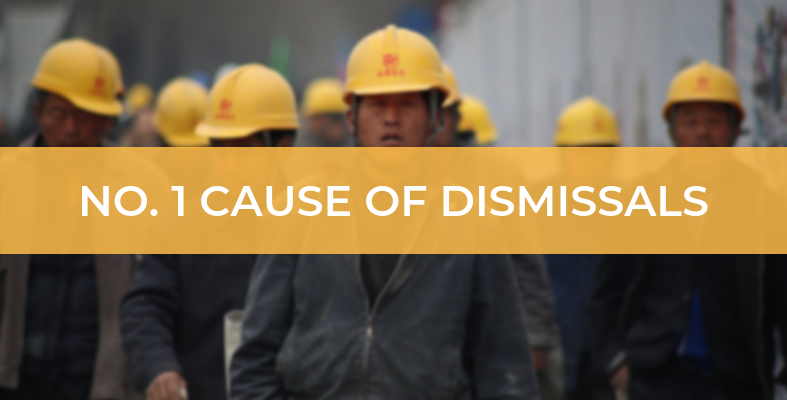
Retrenchment is Malaysia's Most Common Reason for Worker Dismissals
Create Job Description Using AI
Write appealing job descriptions for any job opening to attract the most qualifield and suitable candidates. FOR FREE.
try now
According to the Ministry of Human Resources, retrenchment is one of the most common reasons behind worker dismissals in Malaysia under Section 20 of the Industrial Relations Act 1967 over the past 10 years.
Research by the Institute of Labour Market Information and Analysis (ILMIA) found that 13,882 cases out of 46,915 cases received by the Industrial Relations Department from 2009 until 2018 were for appeal dismissals under section 20 of the Act. This covers about 30% out of all cases.
Misconduct was the second most common reason behind worker dismissals, involving 11,948 cases or 26%. Termination by contract notice on no grounds was third with 14% (6,605 cases).
Difficult working environment (6% or 2,725 cases) and forced resignation (4% or 1,851 cases) took fourth and fifth place, respectively.
In a statement, the Ministry said: "Other reasons (involving 9,904 cases) include probationer, fixed-term contract, voluntary resignation, the frustration of contract, retirement, minimum wages, implementation of retirement and dissatisfaction of performance.”
Protection for Unfairly Dismissed Workers
Between 2014 and 2017, a total of 142,33 workers were dismissed. 15% of them were registered under the Industrial Relations Act 1967.
Came into force on 10 Feb 1989, Section 20 of the Industrial Relations Act 1967 is introduced to provide protection to employees who have been terminated without reasonable causes. This enables workers who face unfair dismissal to file for a work reinstatement within 60 days from their termination date.
Before conducting a dismissal, employers should first seek advice from the Ministry of Human Resources to avoid any unjustifiable treatment on retrenched workers.

The ministry also hoped that trade unions will play their roles to assist workers facing dismissal cases.
“The employers are prohibited to dismiss their workers due to misconduct issues prior to conducting a domestic inquiry (in order) to be fair to the workers. Employers should comply with all requirements under the law, especially in preparing the documentation during the investigation process,” the Ministry said.
“Employers’ associations must also play its role so that members of the association will understand the procedures that they need to adhere to in the event of company closure, a surplus of employees in the company, as well as misbehaviour issues,” it said.
Source: The Malaysian Reserve
Hiring Giving You a Headache? You've found the solution! Register at AJobThing.com to access our recruitment services.
Related articles
HR Guide: Retrenchment Procedures in Malaysia
HR Guide: Manpower Planning & Budgeting
More Layoffs in Malaysian Companies: Understanding VSS and MSS





